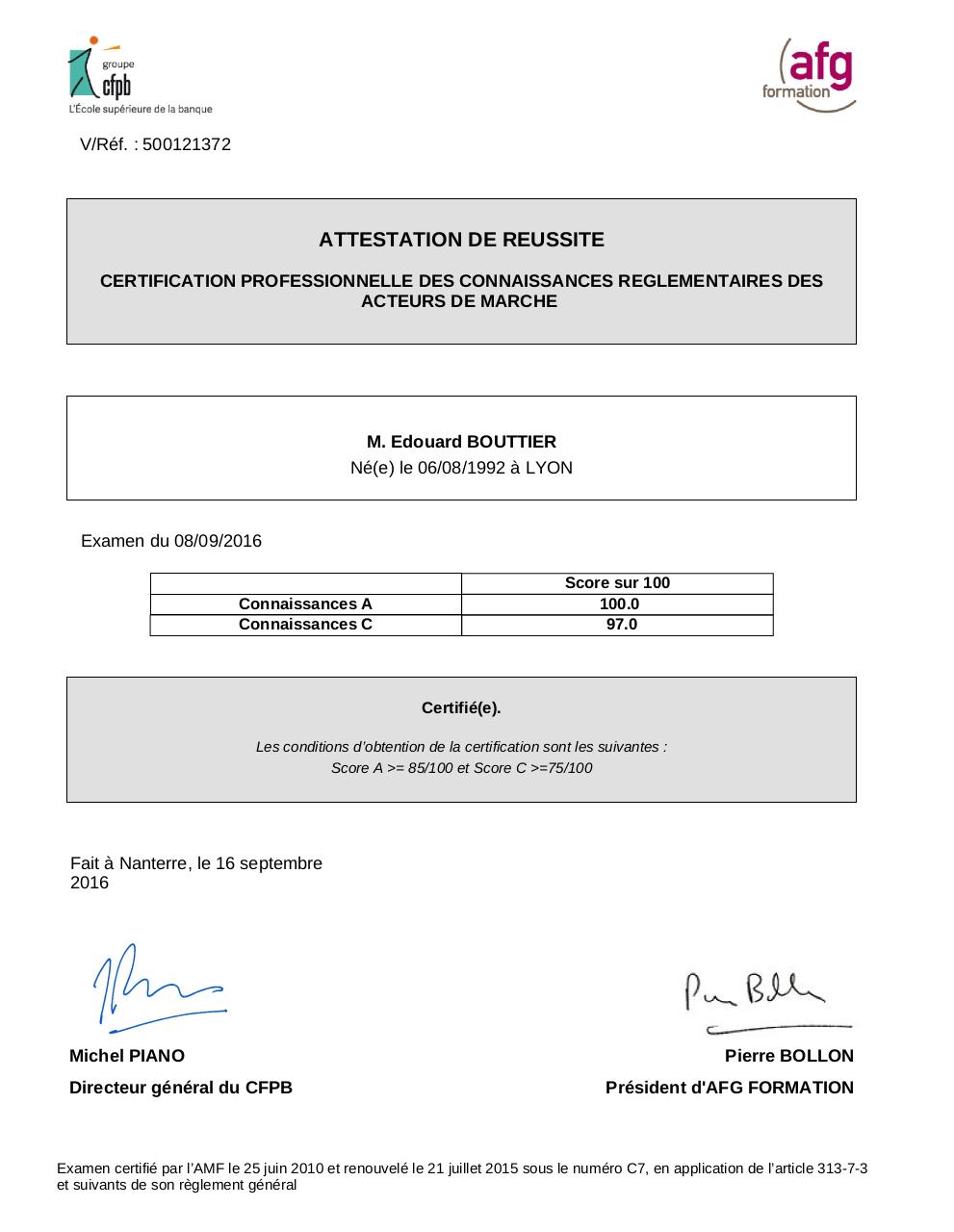CNIL's New AI Regulations: Practical Steps For Businesses

Table of Contents
Understanding the Scope of CNIL AI Regulations
The CNIL's AI regulations focus on ensuring responsible AI development and deployment, prioritizing data protection and user rights. Key areas covered include data protection principles, algorithmic transparency, accountability, and the management of risks associated with AI systems. The regulations are particularly stringent for high-risk AI systems, those that could significantly impact individuals' rights and freedoms.
- Focus on high-risk AI systems: The CNIL specifically targets AI used in areas like credit scoring, facial recognition, and automated decision-making in hiring processes. These systems require heightened scrutiny and compliance measures.
- Emphasis on data protection by design and by default: This core principle necessitates incorporating data protection considerations throughout the entire AI lifecycle, from design to deployment.
- Requirements for impact assessments and record-keeping: Businesses are obligated to conduct thorough Data Protection Impact Assessments (DPIAs) for high-risk AI systems and maintain detailed records of their AI activities.
- Obligations regarding transparency and user information: Users must be informed about the use of AI and have the right to understand and challenge AI-driven decisions affecting them. This includes providing clear and accessible information about the logic involved.
Implementing Data Protection by Design and Default
The principle of data protection by design and by default mandates integrating data protection measures from the initial stages of AI system development. This proactive approach minimizes risks and ensures compliance.
- Minimizing data collection: Only collect the data strictly necessary for the AI system's intended purpose. Avoid unnecessary data collection to reduce risks.
- Data anonymization and pseudonymization techniques: Implement techniques to protect personal data by removing or replacing identifying information, thus minimizing the risk of re-identification.
- Secure data storage and processing: Ensure robust security measures are in place to protect AI data from unauthorized access, loss, or alteration. This includes encryption and access control measures.
- Regular data audits and security assessments: Conduct periodic audits and assessments to identify and address vulnerabilities in data protection practices. This proactive approach helps maintain compliance.
- Best practices: Utilize encryption, access control lists, and regular vulnerability scans to ensure data security. Employ privacy-enhancing technologies (PETs) wherever possible.
Ensuring Algorithmic Transparency and Explainability
Algorithmic transparency and explainability are crucial for building trust and ensuring fairness. The CNIL emphasizes the need for businesses to provide clear explanations of AI-driven outcomes to users.
- Documenting AI systems and decision-making processes: Maintain comprehensive documentation detailing the design, development, and deployment of AI systems, including the algorithms used and their decision-making logic.
- Providing clear explanations of AI-driven outcomes to users: Users should receive understandable explanations of how AI-based decisions impacting them were reached. This fosters trust and allows for challenges if needed.
- Implementing mechanisms for user redress and challenge: Establish clear procedures for users to challenge AI-driven decisions they believe to be unfair or inaccurate. This requires accessible mechanisms for dispute resolution.
- Utilizing techniques for explainable AI (XAI): Employ methods to make the decision-making processes of AI systems more transparent and understandable. This is a rapidly evolving field with numerous techniques available.
Conducting Data Protection Impact Assessments (DPIAs)
A DPIA is a crucial step in assessing and mitigating the risks associated with AI systems, especially high-risk ones. The CNIL requires detailed DPIAs for any AI system likely to cause a high risk to individuals' rights and freedoms.
- Identifying potential risks to individuals' rights and freedoms: Thoroughly identify potential risks to privacy, freedom of expression, and other fundamental rights.
- Evaluating the necessity and proportionality of AI processing: Assess whether the use of AI is truly necessary and whether the processing is proportionate to the intended purpose.
- Implementing appropriate safeguards to mitigate risks: Identify and implement specific measures to mitigate the identified risks. These may include technical, organizational, and procedural safeguards.
- Documenting the DPIA process and its findings: Maintain comprehensive documentation of the entire DPIA process, including the methodology, findings, and implemented safeguards.
Maintaining Accountability and Compliance
Demonstrating accountability and continuous compliance is vital for avoiding penalties and maintaining a strong reputation. The CNIL expects businesses to actively demonstrate their commitment to responsible AI.
- Establishing a data protection officer (DPO): Appointing a DPO can significantly aid in ensuring compliance and providing expert guidance on data protection matters.
- Implementing internal control measures and policies: Establish robust internal controls and policies that address all aspects of AI development and deployment.
- Maintaining comprehensive records of AI activities: Maintain accurate and up-to-date records of all AI-related activities, including data processing, algorithmic choices, and compliance measures.
- Regularly reviewing and updating compliance procedures: Regularly review and update compliance procedures to reflect changes in the regulatory landscape and best practices.
- Preparing for potential audits and inspections: Proactively prepare for potential audits and inspections by the CNIL by maintaining clear documentation and ensuring that all relevant procedures are followed.
Conclusion
The CNIL's new AI regulations represent a significant step towards responsible AI development and deployment. By understanding and implementing the practical steps outlined above – encompassing data protection, algorithmic transparency, DPIAs, and accountability – businesses can effectively navigate the regulatory landscape and build trust with their customers. Ignoring these CNIL AI regulations risks substantial penalties. Take proactive steps today to ensure your organization's compliance with these crucial guidelines. Learn more about staying compliant with CNIL AI regulations and protecting your business.

Featured Posts
-
 New Jersey Prisons Receive Laptops From Princeton A Focus On Digital Literacy
Apr 30, 2025
New Jersey Prisons Receive Laptops From Princeton A Focus On Digital Literacy
Apr 30, 2025 -
 Analyse Du Document Amf Cp 2025 E1029244 D Edenred Pour Les Investisseurs
Apr 30, 2025
Analyse Du Document Amf Cp 2025 E1029244 D Edenred Pour Les Investisseurs
Apr 30, 2025 -
 Seb S A Document Amf Cp 2025 E1021792 Analyse Du Communique Du 24 Fevrier 2025
Apr 30, 2025
Seb S A Document Amf Cp 2025 E1021792 Analyse Du Communique Du 24 Fevrier 2025
Apr 30, 2025 -
 Tsfyat Kas Alealm 2026 Bakambw Yudyf Qwt Hjwmyt Llkwnghw Aldymqratyt
Apr 30, 2025
Tsfyat Kas Alealm 2026 Bakambw Yudyf Qwt Hjwmyt Llkwnghw Aldymqratyt
Apr 30, 2025 -
 Pre Election Warning Trumps Controversial Claim About Us And Canadas Future
Apr 30, 2025
Pre Election Warning Trumps Controversial Claim About Us And Canadas Future
Apr 30, 2025
Latest Posts
-
 Supermodelja Beyonce Ne Fushaten E Re Te Levis
Apr 30, 2025
Supermodelja Beyonce Ne Fushaten E Re Te Levis
Apr 30, 2025 -
 Angelina Jolie E Outras Estrelas Visitas Surpresa Ao Brasil
Apr 30, 2025
Angelina Jolie E Outras Estrelas Visitas Surpresa Ao Brasil
Apr 30, 2025 -
 Shhadt Mylad Bywnsyh Melwmat Jdydt Tkshfha
Apr 30, 2025
Shhadt Mylad Bywnsyh Melwmat Jdydt Tkshfha
Apr 30, 2025 -
 Analyzing Trumps Recent Statements Regarding Canadas Reliance On The Us
Apr 30, 2025
Analyzing Trumps Recent Statements Regarding Canadas Reliance On The Us
Apr 30, 2025 -
 Beyonce Ecja E Saj Sensacionale Per Levis
Apr 30, 2025
Beyonce Ecja E Saj Sensacionale Per Levis
Apr 30, 2025
